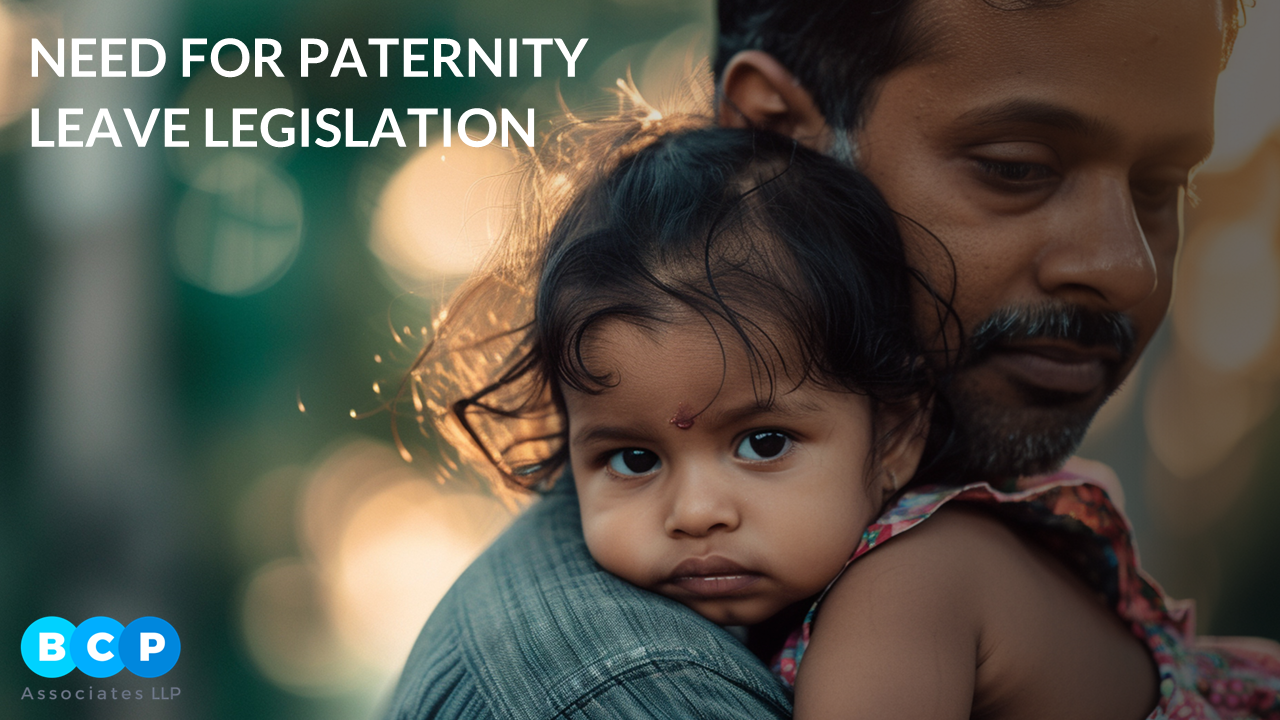
Introduction
Justice Victoria Gowri of the High Court of Madras, Madurai Bench, recently emphasized the need to legislate for paternity leave, asserting it as a fundamental human right for both biological and adoptive parents in the case of B. Saravanan vs. DIGP and others [W.P.(MD). No.19561 of 2023]. In her observation, Justice Victoria Gowri pointed out that the child’s right to life is constitutionally guaranteed under Article 21 of the Constitution of India. The child’s development starts from the early stages of prenatal care, beginning from the mother’s pregnancy and continuing through the postnatal period until the child reaches the age of majority.
Need for Paternity Leave Legislation
Approximately 63% of nations globally offer assured paid parental leave to fathers. Notably, the United States and India do not extend paid paternity leave to their employees, except for central government employees in India. In contrast, various countries differ in their provisions, such as the United Kingdom offering approximately 1 to 2 weeks, Sweden granting up to 34 weeks, Estonia providing around 41 weeks, and Japan allowing approximately 52 weeks of paid paternity leave.
In India, there is no legal requirement for private-sector companies to offer paternity leave to fathers. Whereas, the Central Civil Services (Leave) Rules, 1972, enable eligible individuals to take paternity leave for a maximum of 15 days, either before or within 6 months of the child’s delivery, of which 15 days is paid paternity leave. On the other hand, Sikkim stands out as the sole state government in India to grant its employees a one-month paid paternity leave benefit.
Sometime, in the year 2017 a private member’s bill known as “The Paternity Benefit Bill, 2017” was introduced in the Lok Sabha. This proposed bill sought to establish a paid leave period of fifteen days, which could be taken within three months of a child’s birth. The proposed bill applied to children being adopted under three months of age and extended to men working in both organized (private sector) and unorganized sectors. However, the said bill failed to see the light of the day.
Presently, as an industry practice, many private companies offer approximately 10 to 15 days of paid paternity leave, with a focus on the well-being of their workforce. Notedly, we have known cricketers like Virat Kohli and Jasprit Bumrah who have taken breaks from playing cricket on occasion of the birth of their child.
Whereas on the other hand, Elon Musk upon taking over of Twitter brought down the paternity leave from 20 weeks to 2 weeks in line with his policy at Tesla. However, this move was severely criticised by many as it would give mothers a little time to rest, recover and spend time with their newborns in many US states.
It’s important to note that both maternity and paternity are intrinsically linked to the roles of motherhood and fatherhood, as the well-being and upbringing of a child are shared responsibilities within the family. While a mother’s presence with the child is undoubtedly crucial, the father assumes a significant role from the child’s birth. This role includes arranging necessary vaccinations, obtaining the birth certificate, and most importantly, it’s a period where the father can establish a strong bond with the child while also providing essential support to his spouse during childbirth.
Conclusion
Both the mother and father have pivotal roles during and immediately after childbirth, with the father having the responsibility to care for both the newborn and the mother. This includes making all the necessary arrangements for providing prenatal and postnatal support to both the mother and child. This responsibility is of utmost importance and cannot be overlooked.
While the government has already implemented paternity leave for central government employees, it’s imperative to enact a gender-neutral law that addresses the contemporary needs of both parents and the child. India is already among the top fourteen countries in terms of providing the most extensive maternity leave. By introducing a 15-day paternity leave, India would rank among the top thirteen countries globally in terms of offering generous paternity leave and related benefits.
-K G Devaiah,
Advocate & Junior Partner